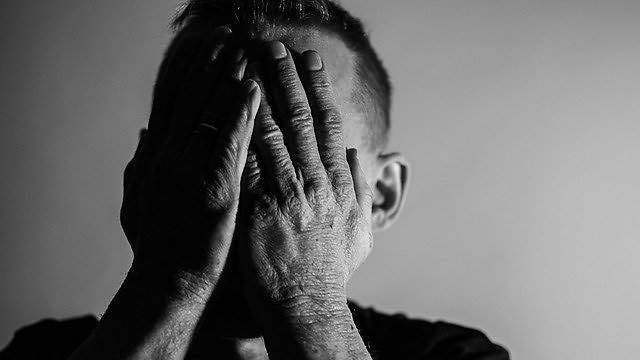Voyeuristic Disorder | Symptoms, Causes & Treatment
The voyeuristic disorder is a category of Paraphilic Disorders which are disorders characterized by a strong and profound sexual interest in unusual sexual objects or activities. The voyeuristic disorder is sexual arousal from watching a person who is naked or engaged in sexual activity when they do not know or have consented to be watched. People suffering from the voyeuristic disorder are known as “voyeurs.” Another common term is “peeping toms.” They may look into windows, use binoculars from a distance, or set up cameras to watch other individuals and couples naked and/or engaging in sexual activities. While watching others the voyeur becomes sexually aroused and usually masturbates or practices other erotic acts.
What is Voyeurism?
Voyeurism refers to an interest in watching others. It is not uncommon for people to view others naked or involved in sexual activity to become aroused, and even to the point of masturbation. If the person purposely looks for situations where they can watch others without their knowing it, then it can give rise to a paraphilic disorder known as a voyeuristic disorder. Voyeuristic behaviors are illegal and criminal charges can be filed against the voyeur. Women are less likely to be voyeurs compared to men by a ratio of 4% and 12 % respectively. Sexual content and pornographic images and/or videos are readily found on the Internet. This is not considered to be part of this disorder because you are in the privacy of your own home and you are not viewing others naked or having sex without their consent. That’s why, to get better voyeurism treatment, you must know about paraphilic disorder symptoms as well as voyeurism symptoms.

Voyeuristic Disorder Symptoms
The most common voyeurism Symptoms are:
- Continuous and strong sexual arousal by observing others naked or performing sexual acts.
- Voyeuristic thoughts urge, or behaviors interfere with day to functioning.
- Watching someone without their consent.
Some individuals with this voyeurism disorder carry out sexual actions on themselves when fantasizing about, or watching, others involved in sexual activities.
Voyeurism is often comorbid with other disorders such as substance abuse, anxiety, depression, etc. In some cases, individuals with this disorder can develop other paraphilic voyeurism disorders (sexual sadism, exhibitionist disorder, sexual masochism, etc.)
Committed to helping
people who want to help themselves
What Causes Voyeuristic Disorder?
There are no specific Voyeuristic Disorder causes but certain risk factors or reasons can increase an individual’s potential to develop the voyeurism disorder. Some aspects are:
- Sexual abuse in the past or during childhood
- Substance misuse/abuse
- Hyper-sexuality
- Sexual obsessions
Voyeuristic Disorder Effects
A person who suffers from voyeuristic disorder can feel emotional distress, isolation, fear of being judged by others, and humiliation. All of these will negatively impact relationships. The partner of individuals with the voyeuristic disorder might also feel inadequate, unattractive, or concerned about the consequences and complications this disorder can have. A couple with one person in the relationship having this disorder should seek appropriate couples therapy.
Complications of Voyeuristic Disorder:
The complications for individuals with Voyeuristic Disorder include hyper-sexuality. This is having a very frequent and extremely high sex drive. The person had problems controlling their thoughts, urges, and behaviors. A person with this disorder can develop other paraphilias or other mental health disturbances such as depression, anxiety, etc.
Voyeuristic Disorder Diagnosis:
An individual must meet the following criteria to be considered for having this disorder:
- Individuals are recurrently and strongly aroused by watching a person without their knowledge or consent of them undressed, removing clothes, or engaging in sexual activities. Arousal is present in fantasy, urges, or activities.
- The individual satisfies their sexual urges by watching an unaware person; or, fantasy, strong urges, or activities cause distress or impact daily functioning.
- The disorder is present for more than six (6) months.
Committed to helping
people who want to help themselves
Voyeuristic Disorder Treatment
Similar to the majority of other psychological disorders, Voyeuristic disorder is curable if the person is motivated to stop the voyeuristic behaviors. The important thing is to identify when you are in need of help. People with this disorder, as with other paraphilic disorders, are fearful of being judged, embarrassed, or feeling humiliated at the thought of speaking to anyone about it, even a therapist. This leads them to not seek help and often the disorder will become worse or other paraphilias and/or mental health issues can develop. Voyeuristic Disorder Treatment by a qualified therapist who specializes in sexual issues can help by:
- Introducing ways to control desires
- Exploring healthy outlets when triggers or urges occur
- Addressing and correcting thinking errors and negative thoughts
- Recognizing places or circumstances that would increase the probability voyeuristic behavior may occur and how to change this

Psychotherapy for Voyeuristic Disorder:
- Cognitive behavior therapy (CBT) can help with learning skills to control urges and learn why voyeuristic behaviors are unhealthy.
- Voyeurism Treatment can introduce appropriate coping mechanisms to assist with fighting voyeuristic sexual desires.
- Voyeurism Treatment helps the individual develop insight toward the root cause and thinking errors that promote voyeuristic behaviors and assist them with making positive changes.
Medications that May Help for Voyeuristic Disorder:
Antidepressants: SSRIs (Selective serotonin reuptake inhibitors) can decrease sex drive and help with any mental health complications such as depression or anxiety that are being caused by the disorder.
Antiandrogens: Cyproterone acetate and Medroxyprogesterone acetate are medicines that reduce testosterone levels.
If these medicines are not helpful, drugs like Anti-androgens are used which include:
- Depot medroxyprogesterone acetate
- GnRH (Gonadotropin-releasing hormone) agonists like elagolix, degarelix, etc.
These medications decrease the production of FSH (follicle-stimulating hormone) and LH (luteinizing hormone) from the pituitary gland and thereby decrease the production of testosterone.
